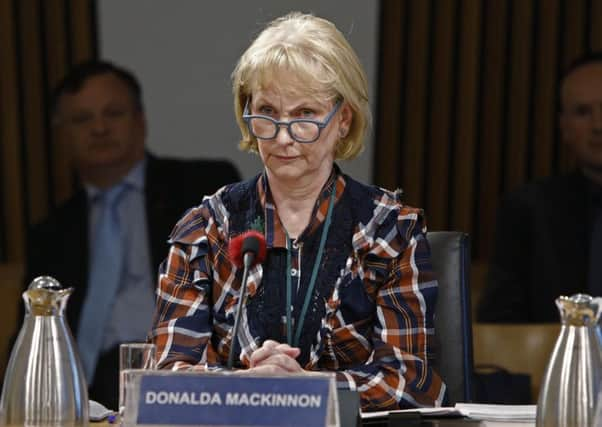BBC boss admits equal pay cases taking too long


Addressing Holyrood’s culture committee yesterday, she said: “We have been dealing with these equal pay cases and many other pay inquiries over the course of the last two years.
“In this last year I have to admit the process has taken too long. I think it has been a bruising experience for those who have been involved in it, who have raised queries about their pay, and I thoroughly regret that.
Advertisement
Hide AdAdvertisement
Hide Ad“We are doing our best to deal with these cases, to examine them thoroughly. That can take time because you can be dealing with some pay cases that go back decades.
“But I do think we are intent on fixing this situation. It is not good enough, it is one I personally wish we didn’t have.”
Glyn Isherwood, group finance and operations director for the BBC, said across the corporation as a whole some 1,300 pay queries were being dealt with, many as a result of a new framework aimed at making salaries more transparent.
These include 74 cases raised in Scotland, he said, with only a “handful” of them outstanding.
He told the committee: “The reason we don’t want to go into an exact number is it is such a small number we don’t want to relate it to individuals.”
Committee convener Joan McAlpine said that in some cases, the “dice were loaded” against female staff complaining about their salary.
She said: “There is concern, certainly amongst the people I have spoken to, that you are not treating enough of these cases as equal pay cases and the dice are loaded against the women, because the BBC are employing HR specialists and lawyers to deal with this and the women fighting the cases don’t have that advantage.”
With bosses from the broadcaster appearing before MSPs for the first time since the new BBC Scotland channel was launched, Ms MacKinnon said they were “very proud” of what it has achieved
Advertisement
Hide AdAdvertisement
Hide AdSteve Carson, head of multi- platform commissioning at BBC Scotland, said the new channel had a greater reach in terms of the number of people tuning in each week than “household names [such as E4 and Sky One] that have been long established and have very significant marketing budgets”.
He added: “On some weeknights we out perform Channel 5, Channel 4 and BBC 2.”
The equal pay tribunal brought by presenter Samira Ahmed against the BBC has meanwhile ended.
The ruling of the central London employment tribunal has been reserved and is set to be published at a later date, according to the BBC.
Ms Ahmed, who presents Newswatch, is seeking nearly £700,000 from the BBC in an equal pay claim.